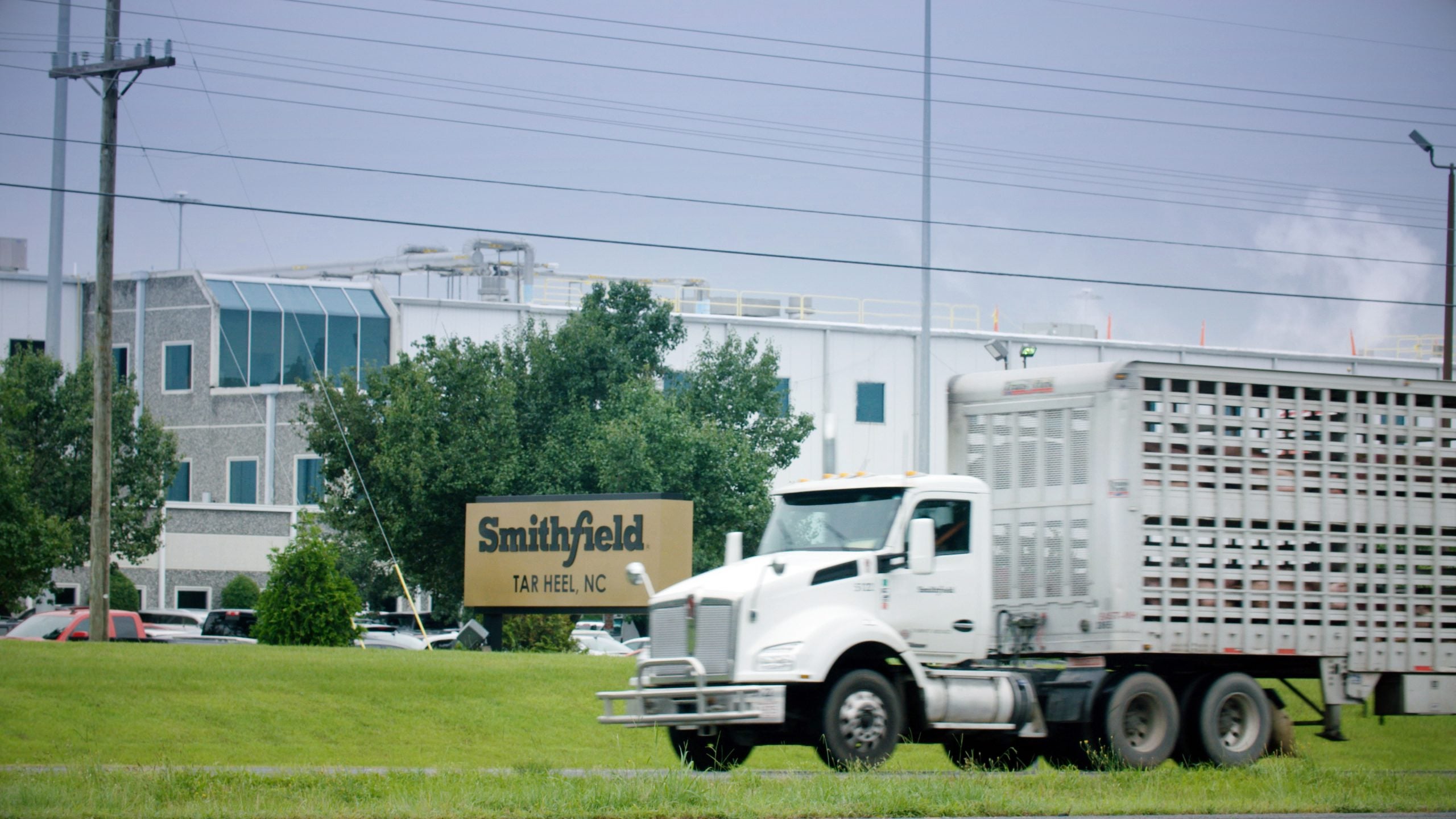
“The Smell of Money” is a documentary released on streaming platforms last week that follows a North Carolina community’s decades-long fight against Smithfield Foods, which has been polluting their predominantly Black neighborhood.
As Naeema Muhammad explained in the film, “Eastern North Carolina is the dumping grounds for North Carolina. We always say whatever white people don’t want in their backyards, come to Eastern North Carolina. We’ll show it to you ‘cause it’s here.”

Smithfield Foods declined comment on the documentary. But as their website boldly states “At Smithfield Foods, we make more than good food. We make a difference…We are good stewards of the environment. We do good in our communities. ‘Good’ describes everything we do at Smithfield and it’s an integral part of who we are.”
Black North Carolinians living in the eastern part of the state are sure to disagree. Families who have lived in the area “for generations, ha[ve] to endure everything that comes with an industrial hog operation of that size: the flies, buzzards and endless sounds of pigs squealing,” North Carolina Health News reports. Also, because the hog waste is “flushed into open lagoons and sprayed onto feed crops as fertilizer,” residents are inundated with “minute particles of feces that marred their homes, cars, mailboxes and laundry.”
If you look at a “map of the historical slave populations in North Carolina and overlay that with the CAFOs, you can see there’s quite a clear correlation.”
ESSENCE had a chance to view the film and discuss it with writer and producer Jamie Berger.
“There’s a legacy of oppression that shows up now in the form of these concentrated animal feeding operations (CAFO) factory farms, and the geographical pattern of where they’re located,” Berger explains. If you look at a “map of the historical slave populations in North Carolina and overlay that with the CAFOs, you can see there’s quite a clear correlation.”
“And it was only when a factory farm was slated to be built near a wealthy white golf resort, that the legislators of North Carolina decided to pass a moratorium on the construction of new CAFOs. There was a clear pattern where hundreds and thousands of these farms were popping up in largely Black communities, and it was only when they threatened a golf resort that the legislature was willing to react,” said Berger.
The film documents how the residents fought back through the courts and eventually won on appeal.
Smithfield agreed to a multi-million dollar settlement with residents, but agricultural business leaders have made sure it’s not a common occurrence: they teamed up with state farm bureaus to pass laws that make it harder to sue a CAFO and have placed caps on the limits of how much the companies can be forced to payout.

This film was more than six years in the making, and this issue is still plaguing the community. Even though neighbors were awarded damages through the lawsuit, Smithfield was not required to stop its practices.
Is there a solution in sight? Berger discussed how “we used to eat a lot fewer animal products, and in the last 50 to 60 years, meat consumption has skyrocketed around the world. We have come to accept and expect that meat is widely available, very accessible, and very cheap. And that’s only because these costs are borne by somebody else. We aren’t paying for them as consumers, but somebody else is paying for them. Whether it’s communities, animals, workers, environment, or future generations, we need to keep in mind that the cost is artificially low because someone on the other end is paying for it.”
You can watch the documentary on Apple, iTunes, YouTube, Google Play, and Amazon.




